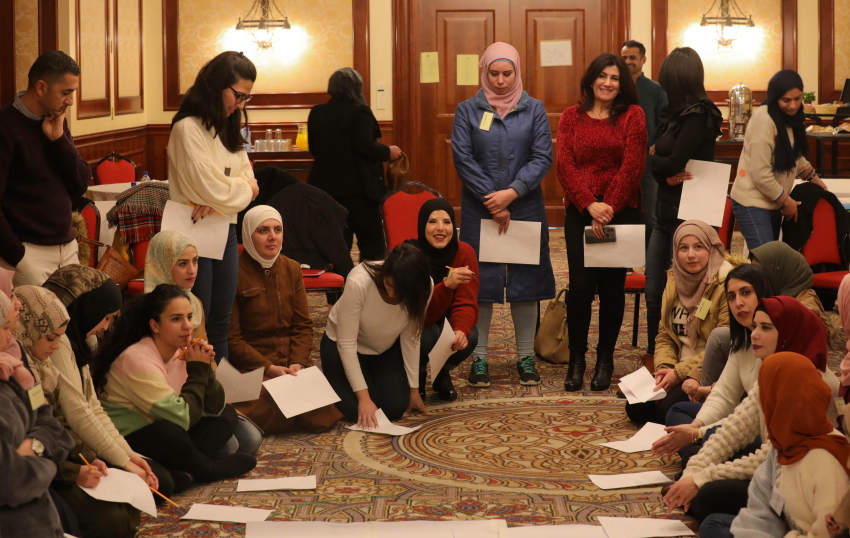
The Educational Research and Development Programme (ERDP) at A.M. Qattan Foundation, in collaboration with the Swiss Agency for Development and Cooperation (SDC) launched on Saturday January 4, its teacher training winter courses. 80 Palestinian teachers were enrolled in the courses, which lasted for three consecutive days, in Oasis Hotel in Jericho.
The courses were divided into three educational tracks: two of the tracks, “Process Drama” and “Drama and the Social Context”, targeted teachers enrolled in the first and second levels of the “Summer School: Drama in Education Programme” and aimed at enhancing participants’ knowledge of research and planning. The third track, “Mantle of the Expert Approach: a Child and an Educator in a Project”, was an introductory course targeting a new group of early childhood educators within the Early Childhood Professional Development programme.
Wasim Kurdi, ERDP Director and trainer at the Winter Courses, stated: “Winter Courses this year are intended to develop our professional development training programme at the Foundation in the near future by focusing our work on three main fields of drama: Process Drama, Drama and Childhood, and Drama and Project.
The teaching staff at the Winter Courses included: Wasim Kurdi, Malik al-Rimawi (Manager of ERDP Languages and Humanities Track), Nader Wahbeh (Director of the Science Studio), in addition to a group of researchers at AMQF; Vivian Tannous, Motasem Atrash, Raafat Asaad, Yousef Alkhawaja and Mohammad Alkhawaja.
The Winter Courses are part of an educational initiative organized annually by AMQF as part of its teachers’ professional development programme. This programme aims to develop the quality of education in Palestine and the Arab World, and its relevance to the human experience. It enables teachers to develop educational strategies suitable for their students and their realities, and employ various educational methodologies.
As for what is unique about the Winter Courses this year, Kurdi added: “Attending the Winter Courses this year has become an integral part of the requirements for teachers to pass the Drama in Education Programme. We also developed a new track related to drama and society, where teachers can lead a real project with their students in their own community, starting from their own classroom. We also started working with a new group of early childhood educators, whom we will continue to work with throughout this year.
